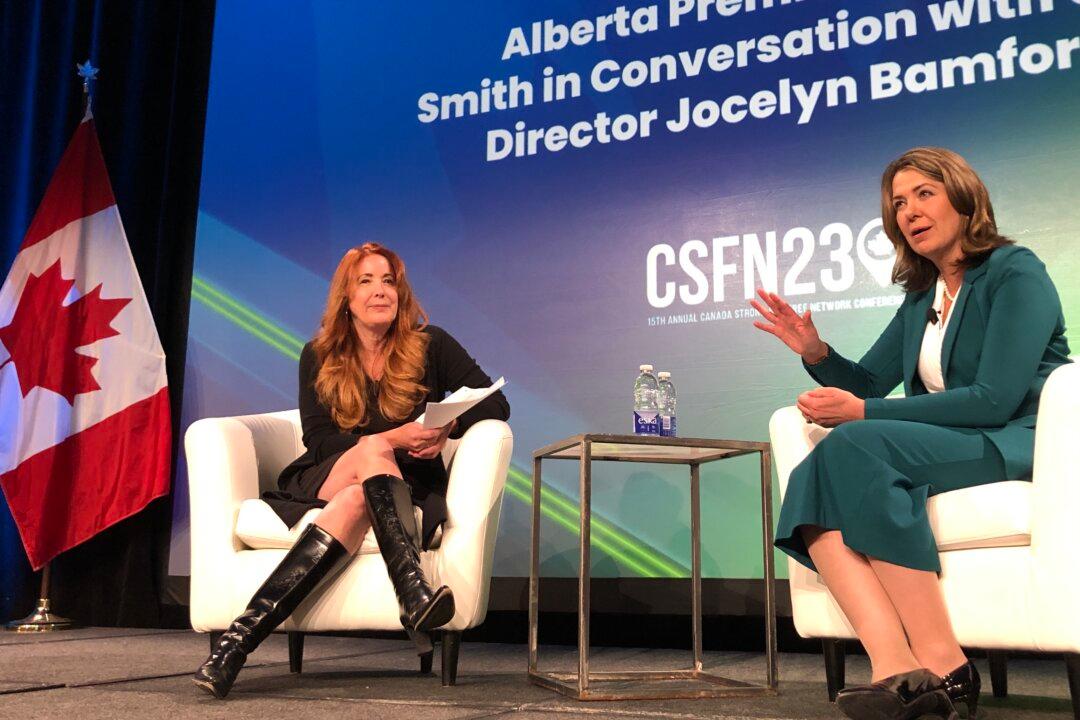Alberta Premier Danielle Smith says that for conservatives to win elections at the provincial and federal levels, they must develop a vision for “applying conservative values to the delivery of public services.”
“I have felt like conservatives will say ‘vote for me, and I will cut your taxes, cut your regulation, cut your spending,’ and we don’t really have a vision for what we are going to do with all of those dollars that get generated from taxes, other than just handed over to the same people that the guys on the [political] left hire,” Smith said.





